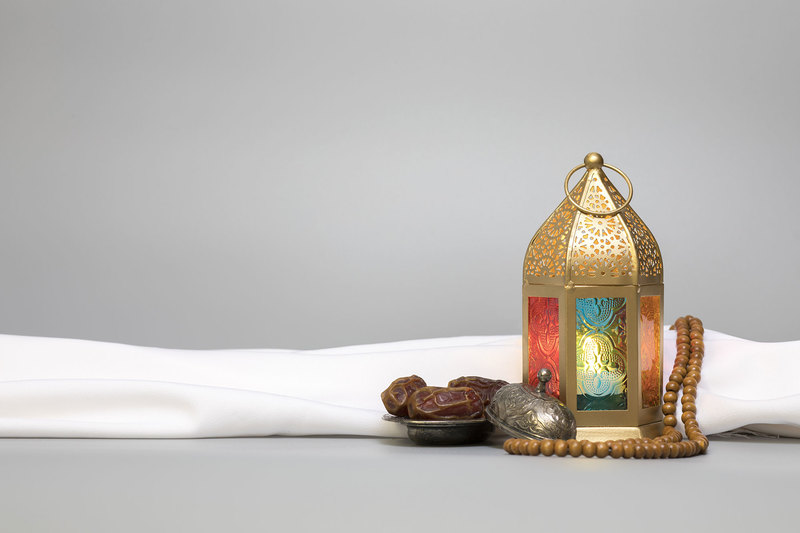My bittersweet Ramadan
11 May 2020 | Story Niémah Davids. Voice Sarin Drew. Read time 5 min.
#UCTLockDownLetters is a new feature on the University of Cape Town (UCT) news site. Staff, students and parents of students: we want to hear about your experiences of work and life in lockdown. Emails, audio and video clips, prose and poetry are also very welcome. This is your space.
11 May 2020
I knew Ramadan would be different this year, especially suhur (pre-dawn breakfast).
By the time the crescent moon was sighted late in April to signal the start of the Islamic holy month of fasting, it marked almost seven months (to the day) since I moved away from the only home I ever knew: my parents’ house.
In the lead-up to that big move, and setting up my new home away from home, just a few short kilometres from mom and dad, Ramadan featured uppermost in my mind. Who can blame me? Fasting is one of the five pillars of Islam, the most significant month on the Islamic calendar, and a time for charity, worship and devotion to Allah (God).
More than that, it’s also a time when families get together and bask in those pre- and post-iftaar (breaking fast) traditions (and boy do we have many of those) that have been around long before my grandparents and their parents were even born.
“As the Muslim ummah (community) ushered in this sacred and beautiful month, I reminded myself that I was not alone.”
So, during my subconscious Ramadan planning, the strategy was clear: I would prepare suhur at my new home. But for iftaar, I’d make my way home to mom and dad. I was happy.
That was not to be. As President Cyril Ramaphosa announced the lockdown extension on the eve of the Easter weekend, I realised that I needed to let go of my plan. I guess naivety had me thinking that it would all be okay by Ramadan, and that I’d be home with the family upholding traditions we all loved so much, but alas.
I was overcome with emotion. As the Muslim ummah (community) ushered in this sacred and beautiful month, I reminded myself that I was not alone. Many out there shared my sentiments as they would for the first time be apart from their loved ones during Ramadan. In fact, just a few weeks prior, the festival of Easter had never been more different for the Christian community too.
Knowing that despite our religious similarities and differences, we were all bound by a common thread brought me a great degree of solace.
Ramadan day one was as unconventional as they come. Mom wasn’t in the kitchen cooking and baking up a storm. And me? Well, I spent the better part of the afternoon on FaceTime, pen in hand, while mom coached me through a few traditional sweet and savoury treat recipes.
A few traditional sweet and savoury treats. Photos Niémah Davids.
Cooking and baking have been a work in progress. While I’m not nearly as skilful as my kitchen-loving mom, my culinary skills have been taking good shape this Ramadan. As tradition dictates, we prepare sweet and savoury treats for iftaar, followed by what is normally a light supper. And for the first time ever, I’ve been in the kitchen at the stove without my mom glancing over my shoulder; instead I’ve received loads of support and encouragement from my husband.
Together, we uphold many of the traditions we’re both accustomed to and it’s been bittersweet. Later this week we’re even planning a Zoom iftaar to celebrate my dad’s 69th birthday. I’m sure everyone can attest – lockdown really has forced us to become more innovative and to make do with what we have.
With about two weeks left of Ramadan, I’ve been wondering what Eid-ul-Fitr (the celebration marking the end of the fast) will look like. Can we celebrate with family and friends? Wishful thinking that we’ll get to a point where social gatherings will be permitted overnight.
So, it’s likely to be an Eid of a different kind for most of us, but memorable nonetheless, and an experience we’ll surely share with our grandchildren one day.
 This work is licensed under a Creative Commons Attribution-NoDerivatives 4.0 International License.
This work is licensed under a Creative Commons Attribution-NoDerivatives 4.0 International License.
Please view the republishing articles page for more information.
UCT Lockdown Letters: Share your stories
In order to foster a sense of community during the COVID-19 lockdown, a new initiative – #UCTLockdownLetters – invites staff and students from across UCT to share your stories about life and survival at home.
How has the lockdown affected you and your ability to work or study? What does your study-from-home space look like? What adaptations have you made to working from home? How are you coping as partners, parents, children, siblings and individuals? How do you cope with stress? What will you do differently after the lockdown?
This is your space to express yourself in any medium you choose: in words, prose, poetry, audio, video or pictures. Your contributions will be curated as part of a special platform designed for sharing – and to create a unique archive for future UCT communities.
Please send your submissions to LockdownLetters@uct.ac.za.
Please remember to avoid including copyrighted material in your submissions. UCT reserves the right to review and select submitted content for publication on this feature page. Videos (in .mp4 format) and audio files (in .mp3 format) can be shared with the Newsroom through downloadable link services like WeTransfer or Google Drive, among others. If you are unsure about how to film yourself, please watch the video tutorial.









































